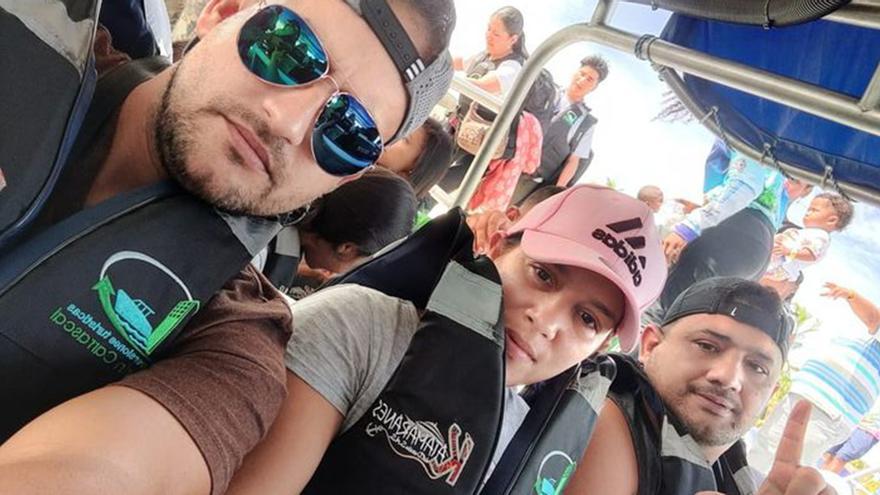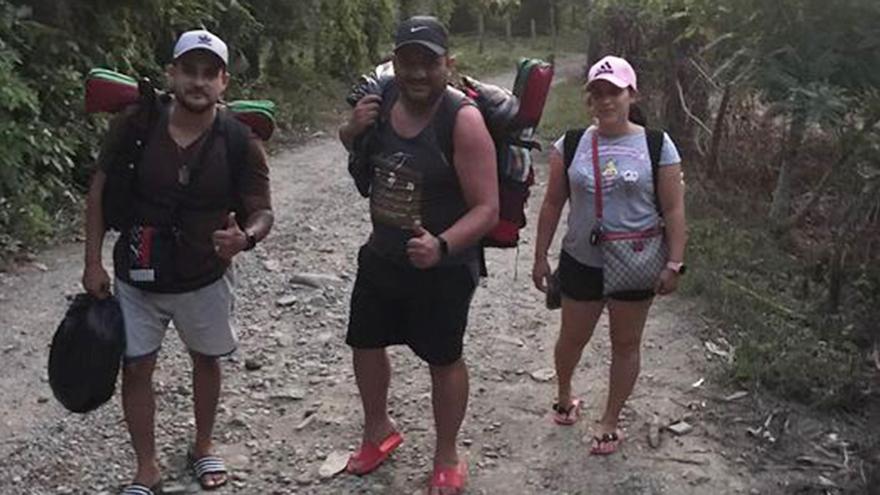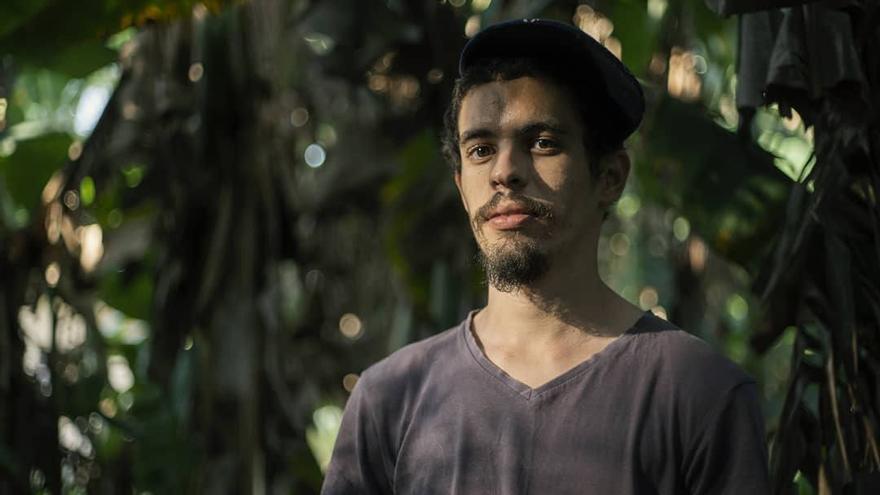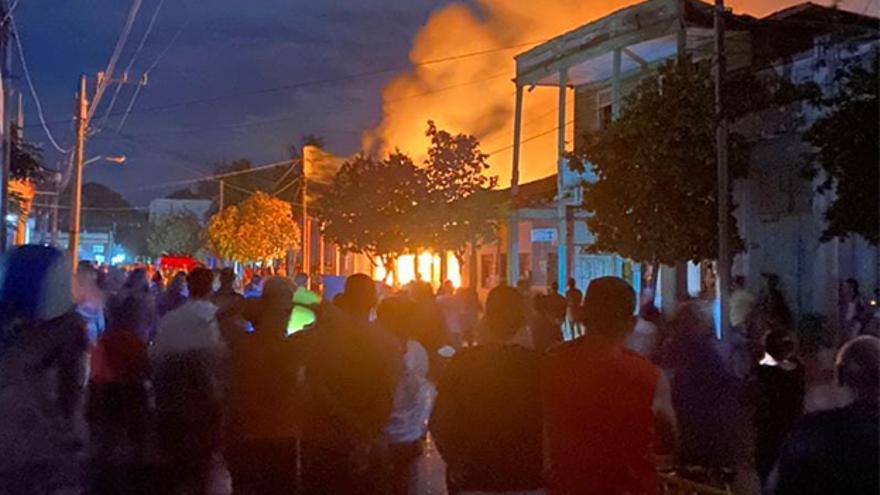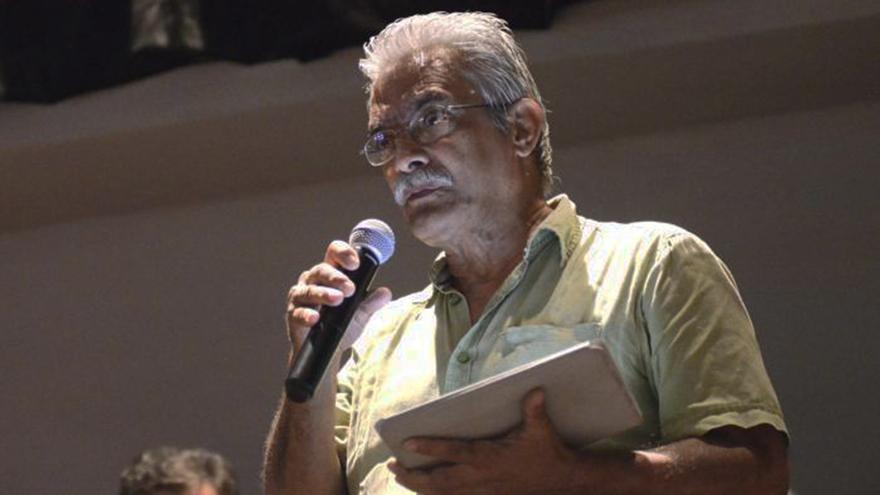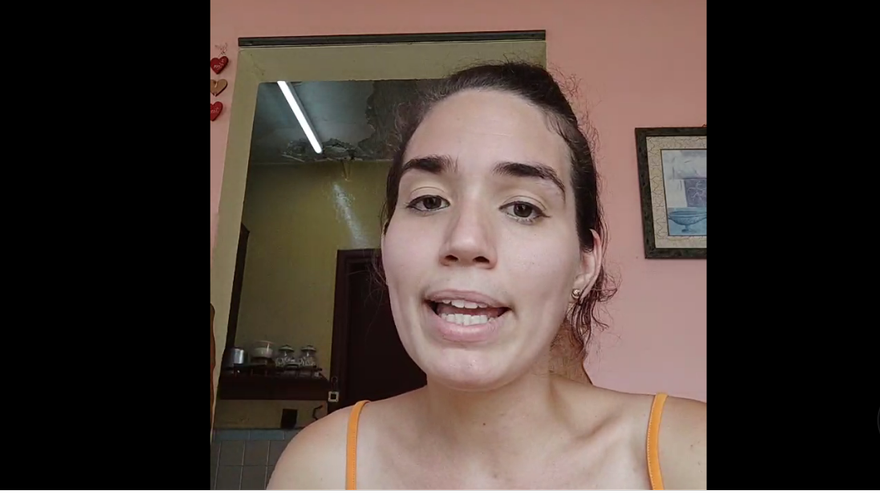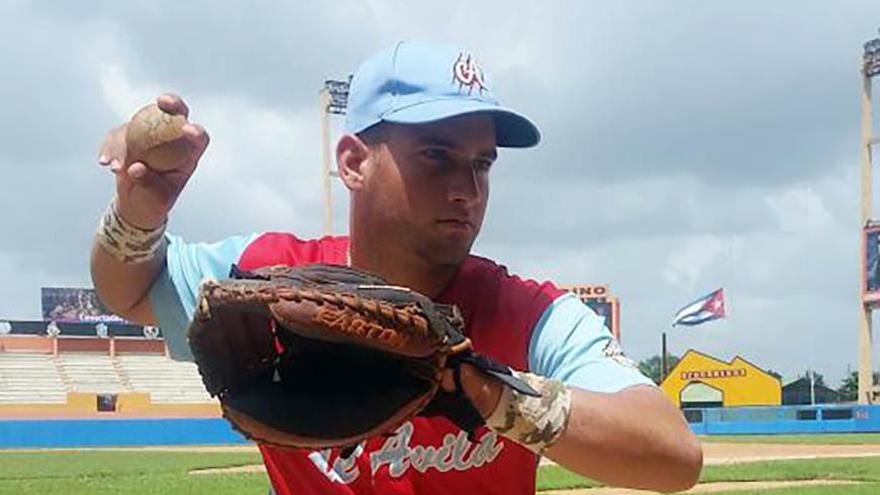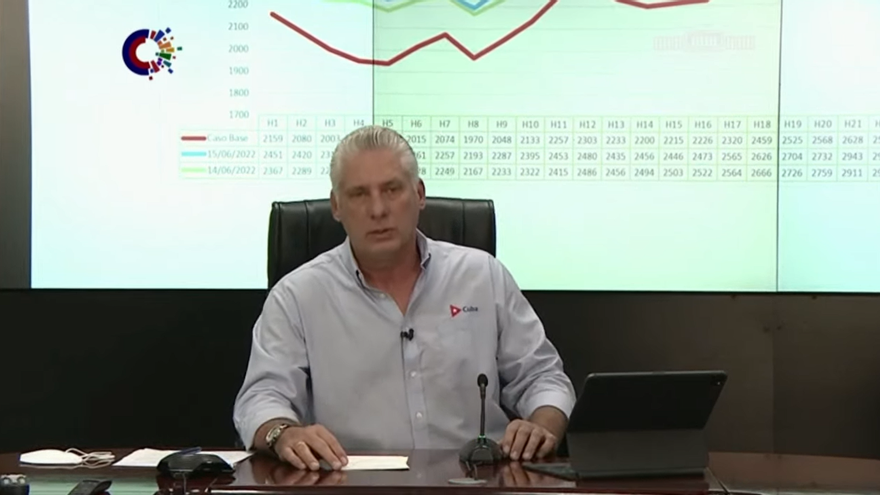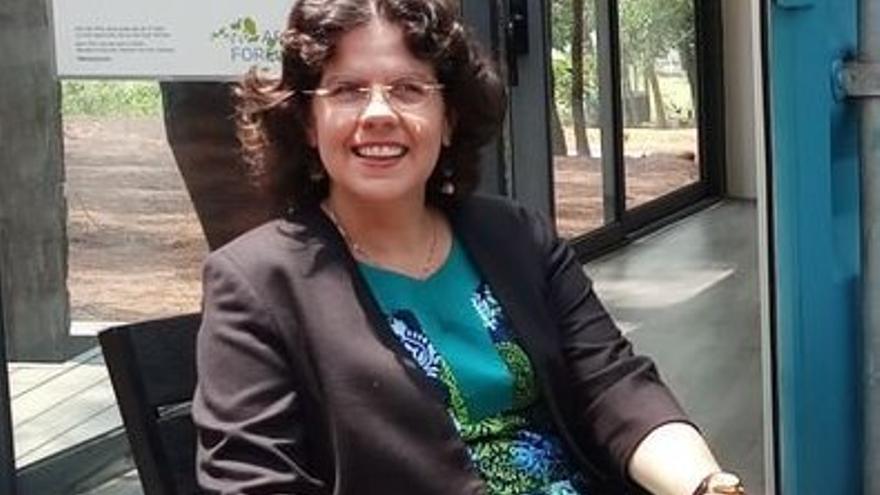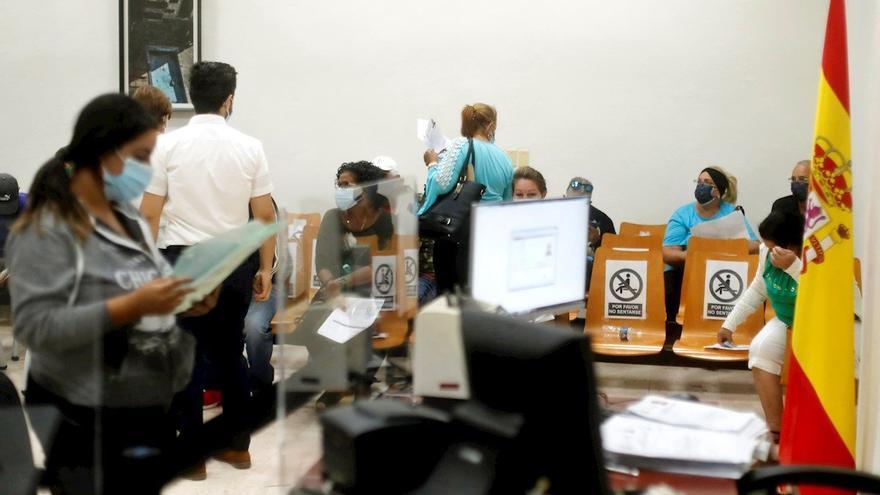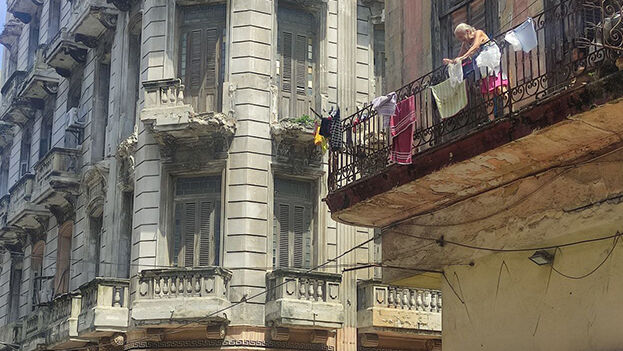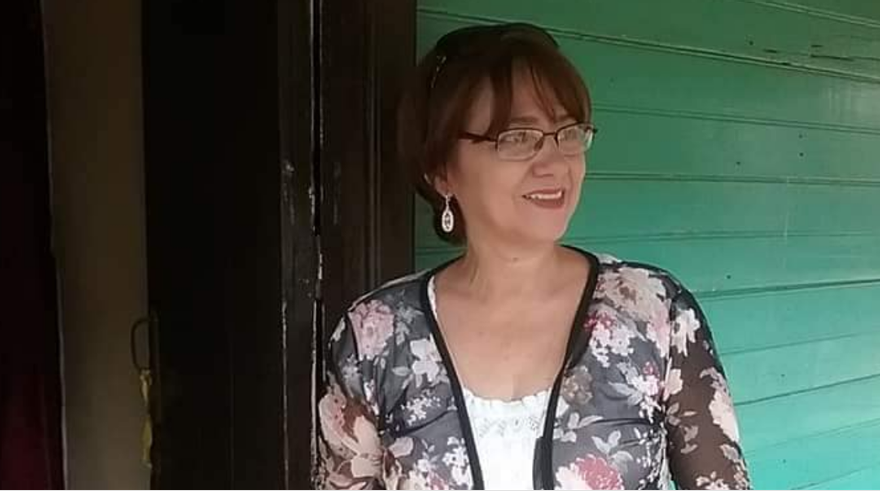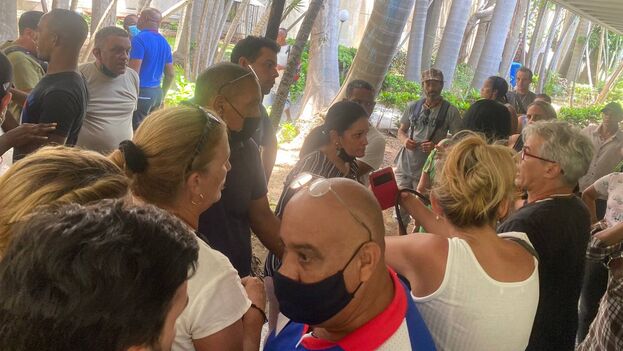
![]() 14ymedio, Havana, 15 June 2022 — The sale of tickets for the Pablo Milanés concert, on June 21 at the National Theater of Cuba, in Havana, turned this Wednesday into a line with an altercation, like so many of those that occur in the capital to buy chicken or oil.
14ymedio, Havana, 15 June 2022 — The sale of tickets for the Pablo Milanés concert, on June 21 at the National Theater of Cuba, in Havana, turned this Wednesday into a line with an altercation, like so many of those that occur in the capital to buy chicken or oil.
Dozens of people protested at the box office when they received the news that there were no seats left. The box office had only been open for 50 minutes and many of those waiting had been in line since the night before.
The explanation given by the director of the theater, Nereyda López Labrada, is that of the 2,056 seats on the premises, only “stalls and first balcony” seats had been sold to the public, and that the rest had been given to “organizations.”
“The theater at the moment is responsible for the programming because the others have problems,” the official explained to the angry crowd, alluding to the fact that the venue was the only one in the capital that offered shows. Others, like the Karl Marx Theater or the Martí Theater, damaged by the explosion of the nearby Saratoga Hotel on May 6, need repairs.
“We had never been given a case like this,” explained López Labrada, who had previously held the position of general secretary of the National Union of Cultural Workers. continue reading
“We knew that this Pablo concert was going to bring about this situation, because it is the only concert that Pablo is going to give, first, because he has health problems,” the woman continued to explain, who was not allowed to finish: “A set of tickets was offered for sale to the public and the other amount was given to organizations.” At that moment, the official’s voice was drowned out by the cries of the people who asked what those “organizations” were.
One man reasoned: “I think there is an entire people wanting to hear him,” and he asked the “organizations” for understanding.
Another woman was less even-tempered, and thought that it was “lack of respect” that he would give a concert mostly to official institutions: “We have grown up with him and he deserves the voice of his people, he has just lost a daughter.”
Between the protests, the director of the theater defended herself, without success: “I also want to tell you that this mass of institutional people are also workers.” The screams rose again above her words.
“I support giving tickets to institutions because we are all workers and we are all Cubans and the institutions can have their capacities reserved but they have to be sold to the public and there must be transparency in the figures,” demanded a young man who spent hours in front of the National Theater box office.
“Many of us are also workers and we leave work to come and buy a ticket. These institutions [referring to the National Theater of Cuba] are public and we all pay for them, no one else maintains them, the people pay for it because it is public money,” the young man added.
Two elderly women in their 80s, who assure that they have never missed a concert by the Cuban artist, were upset. “Pablo Milanés is going to sing. There are difficulties with the tickets that I don’t know what they are,” said one of them, who ended by saying: “I’m waiting to be able to tell Mr. Pablo Milanés: Pablo, I love you.”
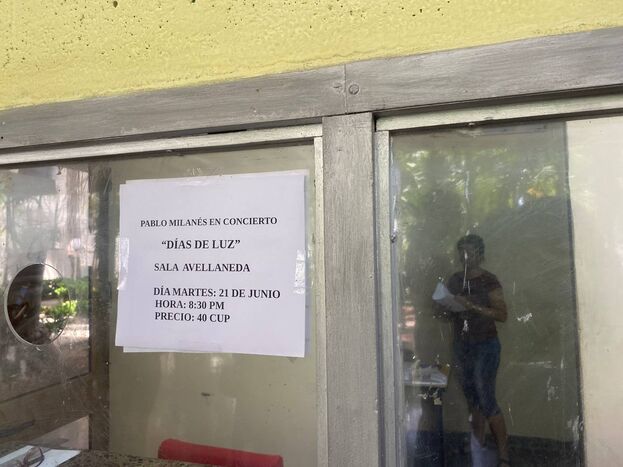
The concert is scheduled for next Tuesday at 8:30 pm and tickets cost 40 pesos
Pablo Milanés, who has lived in Spain for some time, was one of the artists who used to be a supporter of the Revolution who spoke forcefully after the repression of the demonstrations on July 11 last year. “I believe in young people, who with the help of all Cubans, must be and will be the engine of change,” said the famous singer-songwriter on his social networks, who described as “irresponsible and absurd” the Cuban government’s use of repression Cuban against the people, “who have sacrificed themselves and given everything for decades to support a regime that in the end what it does is imprison them.”
On May 29, singer-songwriter Carlos Varela offered a performance at the Havana World Music Festival, at the Ciudad Deportiva Coliseum in Havana, where, at several times, attendees chanted the word “freedom.” Specifically, when he finished singing Family Photo and when he was performing Fools’ Fair. At the end of his performance, the singer-songwriter shouted “Long live free Cuba” and thanked the organizers – with Eme Alfonso at the head – of the event, whom he praised for “having the ovaries” to invite him to sing in Cuba.
____________
COLLABORATE WITH OUR WORK: The 14ymedio team is committed to practicing serious journalism that reflects Cuba’s reality in all its depth. Thank you for joining us on this long journey. We invite you to continue supporting us by becoming a member of 14ymedio now. Together we can continue transforming journalism in Cuba.

